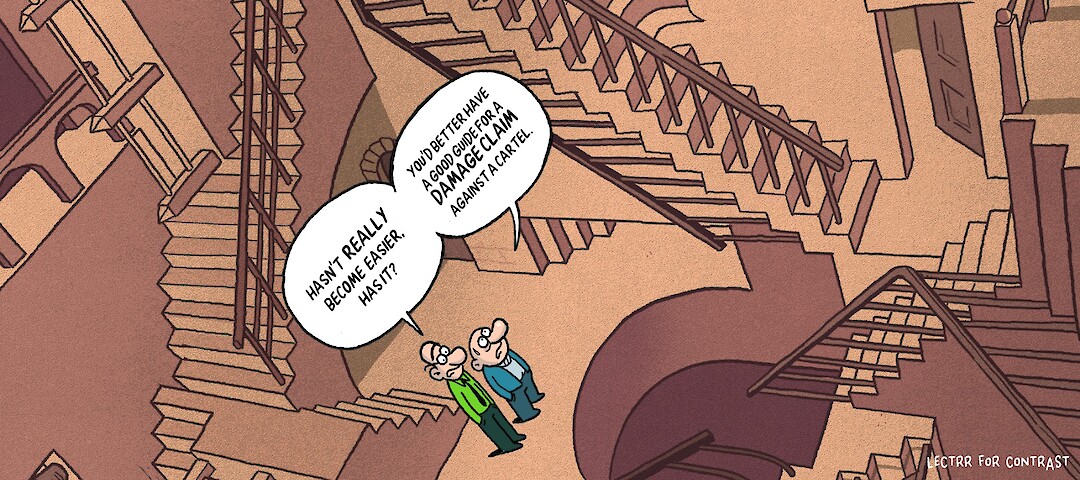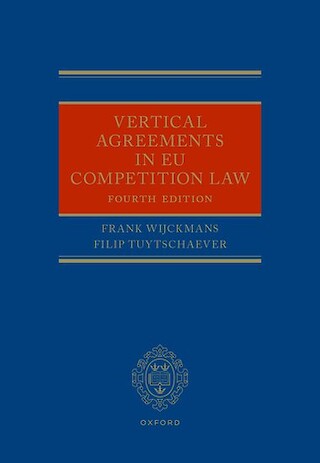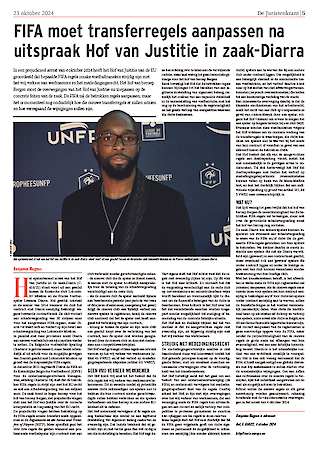In the Picture

Actions for damages for infringements of competition law: the European Commission misses the lift, but claims should rise
January 2025Imagine ...
You are an eyewear manufacturer and learn that one of your lens suppliers has just been convicted by the Competition Authority. The reason? The supplier participated in a price cartel for nearly 6 years. You reflect on the numerous invoices issued by this supplier and think to yourself that you have been seriously cheated.
You recall a discussion with a lawyer friend. She explained to you that victims of competition law infringements can be compensated. She had referred to an ongoing case involving lift manufacturers. They had been convicted by the European Commission because they had shared tenders between them – and in doing so had distorted competition. After imposing heavy fines, the Commission launched proceedings before the Belgian courts to obtain damages.
This leads you to wonder whether you might also be able to obtain compensation as a victim of this price cartel. But how would you go about this? And what happened to the claim against the lift manufacturers?
A brief clarification.
On 21 February 2007, the Commission punished the so-called "Elevator cartel”, which lasted from 1996 to 2004. Following this decision, considering itself a victim of this cartel, the Commission launched proceedings before the Belgian courts claiming damages for the harm it alleged to have suffered in the context of 20 maintenance contracts concluded with lift manufacturers.
The Commission was not able to rely on the EU Private Damages Directive, as the cartel had taken place before the Directive was adopted and transposed into national law, effective in Belgium on 22 June 2017. The directive gives victims the benefit of a number of very useful mechanisms and presumptions, including:
- When a competition authority establishes in a final decision that an infringement of competition law took place, this creates an irrebuttable presumption of the existence of that infringement for the purposes of an action for damages.
- Such an infringement is presumed (in a rebuttable manner) to cause harm.
- In principle, cartel members are jointly and severally liable for any harm caused.
- The judge has broad powers to order the production of documents in the possession of a party to the compensation proceedings, and even of the competition authority.
The recent judgment of the Brussels Court of Appeal in this case demonstrates how valuable these mechanisms and presumptions are for a victim seeking compensation.
Because of the relatively ancient nature of the facts relating to the Elevator cartel, the Commission was unable to rely on these mechanisms. It had to rely on the ordinary law of evidence and civil liability. In its judgment of 18 November 2024, the Court of Appeal recognised the existence of a civil wrong on the part of the lift manufacturers. The Court also found that the Commission had failed to demonstrate that the cartel had led to additional costs in the 20 contracts in question. The lift manufacturers were therefore given the benefit of the doubt: the Court rejected the Commission’s claim for compensation for failure to demonstrate harm causally linked to the wrong. The Court has also refused to grant an indemnity determined on the basis of equity.
The Court also refused to grant an indemnity determined on the basis of equity and rejected the Commission's request to appoint an expert to quantify its loss.
The Court did not let itself be impressed by the identity of the plaintiff and inflicted a crushing defeat on it. The Court would potentially have ruled differently had the Commission been able to rely on the mechanisms and presumptions derived from the Private Damages Directive.
Our eyewear manufacturer will therefore first have to carefully analyse the decision of the competition authority, in particular with a view to ensuring that its purchases were made during the infringement period. It will then have to build its case as fully as possible, documenting its assertions, if necessary, with economic studies quantifying the harm suffered. The manufacturer will hopefully be able to facilitate its task (and that of the judge), by relying on the mechanisms and presumptions introduced by the Private Damages Directive.
Concretely.
- Any party suffering harm as a result of a competition law infringement is entitled to full compensation for the harm.
- The Private Damages Directive, which has been transposed in all EU Member States, enshrines mechanisms and presumptions designed to facilitate the right to compensation.
- As the victim of such an infringement, take the initiative: analyse the decision of the competition authority, delve into your archives to compile the most complete file possible.
- Strength in numbers! Under certain conditions, it is possible for a victim to exercise its right to compensation alongside others by means of a class action.
Want to know more?
- We previously covered this topic in our “In the Picture” of April 2021, entitled “Private damages actions – secure your position”.
- The Private Damages Directive can be consulted here.
- The following page allows you to identify the national measure transposing the Directive in all EU Member States.
Please consult our website or contact one of our team members if you have questions or require more information:












